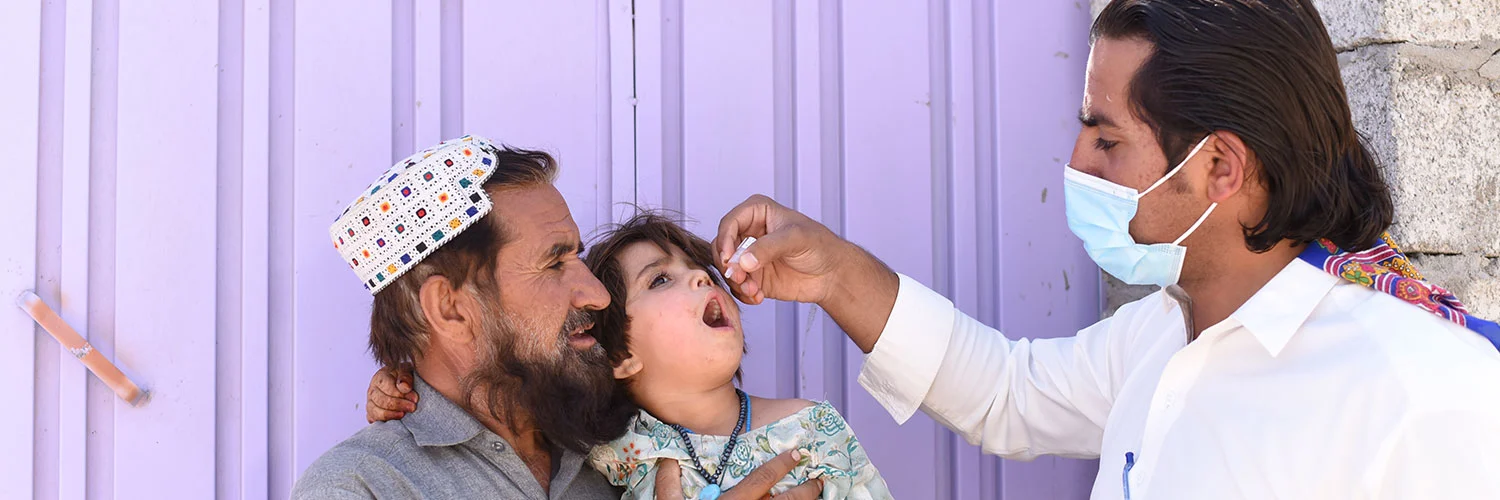Islamabad, March 4, 2024 – Wild poliovirus type 1 (WPV1) has been detected in five sewage samples from Sindh and Khyber Pakhtunkhwa.
The Regional Reference Laboratory at NIH has notified that WPV1 was isolated from a sewage sample collected from Karachi Keamari, Sukkur, Jacobabad, Hyderabad and Peshawar on February 13, all of them containing the imported virus cluster.
Federal Minister for Health Dr Nadeem Jan said no polio cases have been reported from Pakistan so far in 2024, however, the detection of 39 positive environmental samples is concerning.
“Polio is an opportunistic disease that affects vulnerable children, particularly those who do not have sufficient immunity to fight off the virus,” said Dr Jan. “The Health Ministry is conducting a nationwide polio campaign this week and in Khyber Pakhtunkhwa from March 3 where children will be given polio drops and Vitamin A to boost immunity. I urge all parents and caregivers, especially in KP, to ensure their children’s vaccination during this drive.”
Highlighting the vaccine’s benefit, Federal Secretary for Health Iftikhar Ali Shallwani said multiple doses of the oral polio vaccine can protect children from poliovirus’ potential effects of irreversible paralysis.
“The government is committed to ensuring the health and wellbeing of all children. This ongoing polio campaign is part of our consistent efforts to provide critical health services to our citizens,” he said.
“Our vaccinators will be bringing polio vaccine and Vitamin A supplements to your homes, make sure to vaccinate your children and protect them from this disease,” Secretary Shallwani said addressing parents.
Coordinator of the National Emergency Operations Center for Polio Eradication, Dr Shahzad Baig said that because of the persistent detection of poliovirus in sewage samples, the Polio Programme has conducted several vaccination campaigns since last year to ensure enhanced immunity for children, including two national drives so far in 2024.
He said: “In recent months, multiple virus detections have been reported from Peshawar and Karachi which are also high-risk districts being centers of vast population movement. Our teams are working closely with communities in all affected districts to ensure that no child misses vaccination.”
Note for the Editor:
Polio is a highly infectious disease caused by poliovirus mainly affecting children under the age of five years. It invades the nervous system and can cause paralysis or even death. While there is no cure for polio, vaccination is the most effective way to protect children from this crippling disease. Each time a child under the age of five is vaccinated, their protection against the virus is increased. Repeated immunisations have protected millions of children from polio, allowing almost all countries in the world to become polio-free, except for the two endemic countries of Pakistan and Afghanistan.
For further information, please contact: Ms Hania Naeem, Communications Officer, NEOC,
Contact Us: +923431101988
Email: This email address is being protected from spambots. You need JavaScript enabled to view it.

